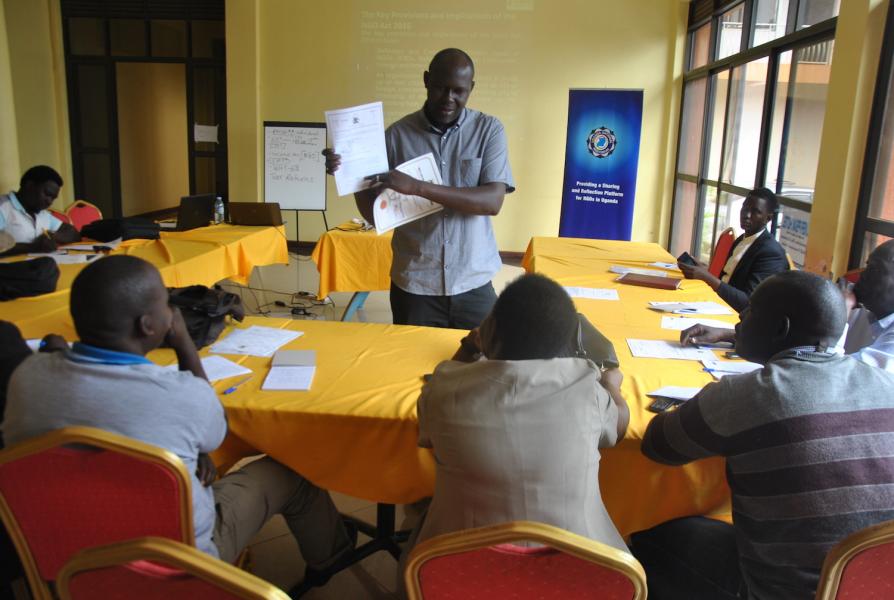
Poor reading culture affects compliance to NGO regulatory framework
Over the years, the Uganda Government has enacted laws that govern the NGO sector including among others the NGO Act 2016, NGO Regulations 2017, NGO Fees 2017, Companies Act, Trustees Incorporation Act, Sector Specific laws like on Health, Education etc. However, majority of the NGO staff and leaders still remain ignorant and less compliant with the relevant provisions pertinent to their work. Against this backdrop therefore, NGO leaders have been challenged to improve on their reading culture so as to appreciate and understand the laws, in order to achieve timely compliance and operate smoothly. This call was made by Counsel Peter Magelah the Program Manager for Chapter Four Uganda while facilitating at the 3 NGO compliance meetings convened by Uganda National NGO Forum in partnership with the Civic Engagement Alliance (CEA) partners in Lango, Teso and Karamoja regions on 7th, 24th, and 25th June 2019. The meetings brought together 64 NGO leaders.
In his presentation, Mr. Magelah noted that the NGO Act 2016 created new structures such as the NGO Monitoring Committees at District and Sub County level and RDCs were no longer heads of these committees but Chief Administrative Officers. NGOs must have a representative on these committees. The DNMCs thus are tasked to register all existing NGOs operational within their jurisdiction; and recommend new NGOs for registration and issuance of a permit to the Bureau. It is important to note that all new NGOs have to first be incorporated as companies ltd by guarantee, and then register as NGOs. All NGOs must be incorporated to operate in Uganda, and must register with the NGO Bureau and districts where they operate and obtain permits. Another compliance requirement to note is about the need for all NGOs to submit annual returns to NGO Bureau once every year as well filing tax returns to Uganda Revenue Authority twice a year i.e 30th June and 31st December of every year.
Mr. Magelah while training the participants challenged NGO leaders to read the available laws so as to be up-to-date and also this would equip them with relevant knowledge to use to minimize exploitation by some state actors. NGO leaders were also challenged to regularly revise their legal instruments to appreciate the timelines especially with the permit and tax returns.
UNNGOF with support from ICCO is implementing a project under the Civic Engagement Alliance “Growing Opportunities for Constructive Civic Engagement for CSOs (GO-4-CCE) in Lango, Teso and Karamoja Regions”. The ICCO program consists of three pathways: i) Political space for CSO, ii) Realizing inclusive and sustainable food systems, iii) Small producers’ empowerment and access to markets and private sector development. UNNGOF takes lead on pathway one.
In 2017 and 2018, UNNGOF held district level and sub county level dialogue meetings in Lira, Soroti and Abim that aimed to formulate a constructive engagement framework which supports the expansion of civic engagement space for CSOs in the selected regions; the meetings involved among other things dissemination of NGO Act and POMA. One of the key outcomes from those meetings was the need for CSOs to comply with the NGO Act and POMA. UNNGOF thus organized compliance clinics for NGOs in Lango, Teso and Karamoja regions to sensitize Civic Engagement Alliance partners and other NGOs on the regulatory framework and its implication on their work. Technical support was also offered to those with specific needs to enhance their compliance. Participants were grateful for the opportunity that UNNGOF provided for them to be conversant with key NGO legal obligations; a participant noted “I really had phobia for this new NGO law but this training has given me the confidence on how to be compliant”.



